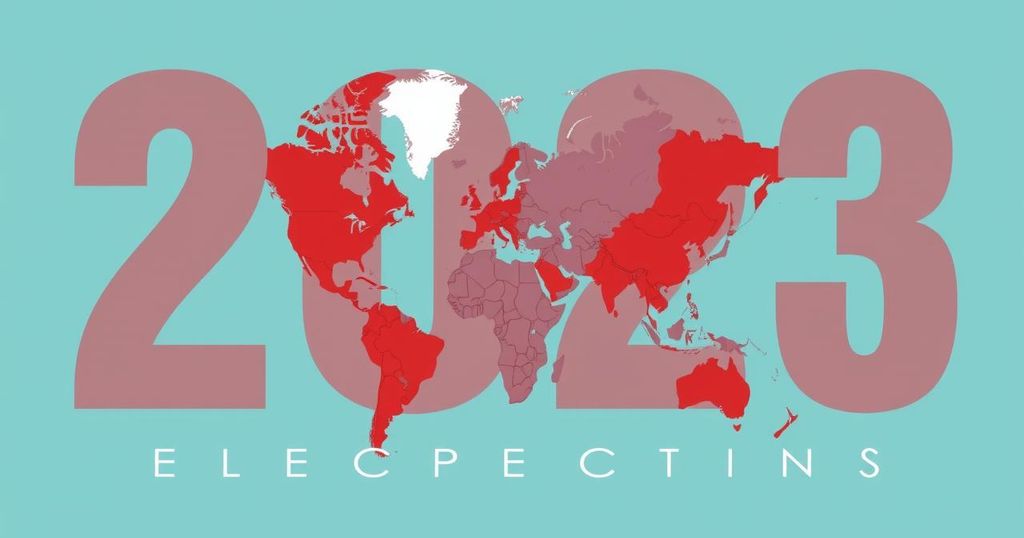In 2024, elections in 70 countries revealed widespread anti-incumbent sentiments as voters expressed fatigue with long-standing governments amid global economic disruption. Significant electoral upsets occurred in major democracies, with a concerning rise in support for far-right parties. Allegations of electoral interference and manipulation indicated growing challenges to democratic integrity, forecasting turbulent political landscapes moving forward into 2025.
In 2024, global elections across approximately 70 countries, representing half of the world’s population, showcased an anti-incumbent sentiment. Voters dissatisfied with economic turmoil and political instability opted to remove several long-standing governments. Major democracies like India, the United States, Japan, and the United Kingdom saw significant upsets as incumbents faced voter backlash. Increased support for the far-right marked a troubling trend amid a decline in trust in established political systems.
“A great year for the far-right, a terrible year for incumbents, and a troublesome year for democracy around the world.” – Cas Mudde, Professor of International Affairs at the University of Georgia.
Factors contributing to this electoral unrest included the lingering effects of the pandemic, economic disruptions exacerbated by geopolitical conflicts, and rampant inflation. For instance, in South Africa, the ruling African National Congress faced unprecedented losses after governing for three decades. Similarly, long-serving political entities in nations like Uruguay and India encountered surprising defeats, signaling a desire for change among constituents.
Moreover, evidence of interference in democratic processes became increasingly evident. Meta, the owner of several social media platforms, reported the removal of numerous covert influence campaigns, highlighting Russia as the leading source of such operations. Allegations of election rigging, especially in Romania and Georgia, intensified scrutiny over the integrity of electoral outcomes. As democracies faced external manipulation and internal discontent, the future remains uncertain, with many incumbent governments grappling with issues of legitimacy.
As 2024 concluded with anxieties over political stability, notable electoral outcomes underscored a demand for substantial changes in governance. With further elections on the horizon in 2025, including critical ones in Canada and Germany, the trend of public discontent and desire for accountability may continue to shape global politics, suggesting a turbulent path ahead for democracies worldwide.
The year 2024 was characterized by a series of significant elections across the globe, affecting approximately 70 countries that collectively represent half the world’s population. Amid economic disturbances and social discontent stemming from the COVID-19 pandemic and subsequent geopolitical conflicts, voters expressed their frustration predominantly through their electoral choices. Many incumbents were ousted, and extreme political factions gained ground, highlighting a broader discontent with traditional democratic processes.
The electoral events of 2024 reflect a momentous shift within global governance, as voters increasingly express dissatisfaction with long-standing political regimes. The rise of far-right movements and the growing challenges facing traditional democratic establishments indicate an urgent need for political reform and greater accountability to restore public trust. As various countries prepare for upcoming elections in 2025, the continuation of these dynamics suggests a persistent climate of instability and discontent within democratic frameworks.
Original Source: www.seattletimes.com






